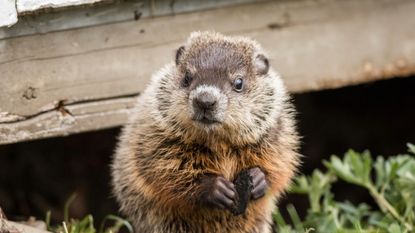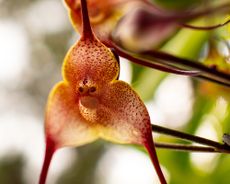10 Fun Facts About Spring - Celebrating Groundhog Day In The Garden


Do you look forward to Groundhog Day, as you learn when spring will physically begin? Many of us love it for just that reason. I'm always excited when temperatures warm right away, but six weeks is not so long to wait for something as wonderful as spring.
The best early springtime chore is planting. Maybe not for all of us, but I assure you it is a favorite of the gardening public. So it's only natural that, as gardeners, we're curious about when we can get started planting in spring. But what other things can we look forward to with the onset of spring?
Fun Facts About Spring
There are many wonderful things that occur each spring, some that have nothing to do with planting, but many that do. We all know that spring is a time for rebirth, renewal, rejuvenation, and regrowth - and who doesn't love that? Here are 10 spring fun facts you may or may not already know:
- Spring is when baby birds learn to sing. Who doesn't enjoy songbirds in the garden? While they're born with the ability, most birds have not learned the songs that are specific to their species. Bird babies usually learn the songs during the first two months of their life.
- Many wildlife animals are born in spring. Use caution if you've located a den or other hideaway with baby animals in the landscape, especially if you have a wildlife garden. The mother is never too far from them and they are extremely protective of their young.
- Spring is a time for bees. Did you know that you're most likely to see a swarm of honeybees in spring? If you happen across these in the garden, do not panic or try to remove them. Most of the time they are only passing through as they search for a permanent place to stay.
- Springtime brings color to gardens. We can't forget springtime flowers that appear, seemingly in succession. In many areas, you'll see blooms from hellebores and crocus. These are closely followed by daffodils, tulips, dandelions, violets, lilies and many others.
- Leafing out begins in spring. Trees and shrubs leaf out in spring and some of them bloom - like dogwoods and cherry trees.
- Time changes in spring. Other springtime occurrences are not such fun, at least for some of us. How about getting up an hour earlier? Daylight Savings Time (DST) begins on the second Sunday in March - spring forward everyone! Two states, Arizona and Hawaii, have plenty of sunshine and don't follow daylight savings time.
- Spring doesn't begin the same time for everyone. Springtime starts differently in some parts of the world. Spring in the Northern Hemisphere occurs when it is autumn in the Southern Hemisphere.
- More daylight means gardening longer. Days and nights are the exact same length on the spring equinox. Length of the night decreases as spring continues, which means we can stay out in the garden for longer periods of time.
- Spring cleaning is a ritual. This annual practice is actually rooted in various ancient traditions from around the globe, dating back centuries. While most common with Jewish, Iranian and Chinese cultures, spring cleaning became important in American history in frontier homes to remove soot accumulation from winter oil lamps and stoves and dust. The earliest use of the term "spring cleaning" is said to have been in 1857. This is a great time to spring clean the garden.
- Spring fever isn't just a saying. Back in the day, around the 18th century, people came down with scurvy around springtime after having gone through winter with little to no fresh vegetables, resulting in a depletion of vitamin C. This seasonal illness became known as "spring disease" or "spring fever." Nowadays, the term is often used to express anticipation of spring - when we gardeners cannot wait to get our hands dirty once again.
Gardening tips, videos, info and more delivered right to your inbox!
Sign up for the Gardening Know How newsletter today and receive a free download of our most popular eBook "How to Grow Delicious Tomatoes."

Becca Badgett was a regular contributor to Gardening Know How for ten years. Co-author of the book How to Grow an EMERGENCY Garden, Becca specializes in succulent and cactus gardening.
-
 How To Get Rid Of Mosquitoes In The Garden: 9 Natural Ways To Make Them Buzz Off!
How To Get Rid Of Mosquitoes In The Garden: 9 Natural Ways To Make Them Buzz Off!How to get rid of mosquitoes is on the minds of people in the summer in almost every region of the world. Learn how to repel the pests without toxic chemicals.
By Mary Ellen Ellis
-
 Monkey Orchid Care: How To Grow This Fascinating Species
Monkey Orchid Care: How To Grow This Fascinating SpeciesThe monkey orchid (Dracula simia) bears a remarkable resemblance to its namesake and, with a little know-how, can be successfully grown as a houseplant.
By Bonnie L. Grant